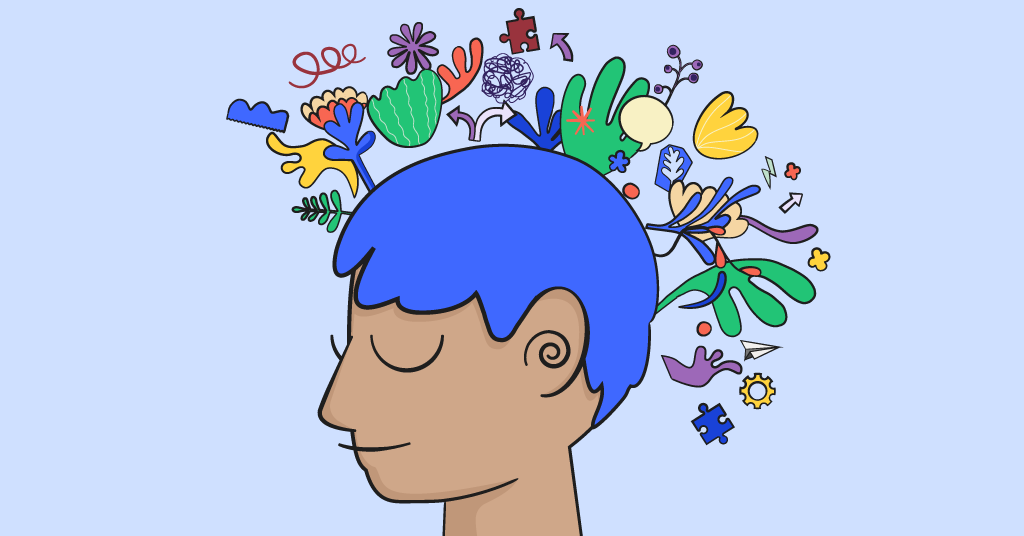
If your child is happy and well-adjusted, talking to them about depression or suicide might seem irrelevant—it might even seem dangerous. After all, introducing the concept of depression, you reason, could inadvertently push them in a direction they might not otherwise go. But what if you knew how to explain depression in a way that would better support your child's mental health?
What you may not realize, is that there’s a strong likelihood this is something to which your teen has already been exposed. It is likely they have one or more classmates dealing with depression. Additionally, children tend to share their experiences, both face-to-face and online. More often than not, they will discuss these big emotions with their peers instead of seeking help from adults. And, when emotions are shared, they tend to be imitated.
If you or someone you care about is struggling with suicidal thoughts, there are many resources that can help. If you believe your child or another person may be in immediate danger, please call 911.
What Is Emotional Contagion?
When someone smiles, we tend to smile. When they cry, we find our own eyes watering up. Psychologists refer to this as “emotional contagion,” which San Francisco State University Psychology Professor, Dr. Ryan Howell, describes as follows:
“…emotional contagion is ‘the tendency to automatically mimic and synchronize expressions, vocalizations, postures, and movements with those of another person and, consequently, to converge emotionally.’”
In other words, whether your teen or tween is displaying symptoms of depression, they could be experiencing the effects of depression through friends. Furthermore, they are potentially at risk of developing similar feelings themselves. Fortunately, there are steps you can take to minimize the impact of those peer-to-peer conversations.
5 Effective Strategies For How To Explain Depression
- Explain that you care about how they feel: You might assume that your child already knows you care about their feelings, but to express it clearly. Children today face a multitude of distractions and concerns about school, sports, and friendships that it’s easy for them to forget something so obvious. Without judging them, you should tell them it’s important to you that they feel good about themselves. Explain, that even if they don't feel this way it won’t change your love for them. Try to use words which mirror their feelings. For example, if you notice that they're angry or sad, you could say something like, “I’m concerned because it seems like you’re worried about something." Then ask them, "Do you want to talk about it?”
. - Ask them to describe their feelings, not explain them: Even though your teen or tween does not appear to be depressed, this lays the foundation for a time they might need to come to you about a friend who is depressed or suicidal. An effective way to do this is by establishing a pattern in which you encourage them to describe what they're feeling without having to explain the reasons for those feelings. Teens and tweens typically don’t know why they feel the way they do. Instead of asking, “why are you angry all the time?” you can say, “Are there things which make you angry?"
. - Reassure them that their “bad” feelings won’t hurt you: One of the reasons teens and tweens are reticent to talk about their feelings is that they believe those feelings will be harmful to others. Yes, this includes their parents. They tend to think these feelings are "toxic." Let your child know, through your words and your actions, that you are a strong person and they can tell you anything.
. - Become a role model by sharing your own feelings: Kids tend to mimic their parents’ behavior. If you’re not willing to be open about your feelings, your child will assume they shouldn’t share their own. You might think it’s wrong to tell a kid that you’re sad or upset, but hiding those feelings actually intensifies their negative impact. Keep in mind children are extremely perceptive and most likely already know something is upsetting you. Especially if the family experiences a sad event, like the death of a grandparent, don’t hesitate to tell your child that you’re sad or feel the need to cry.
. - Let them know they're not alone: Children need to know that there are people they can talk to, no matter what they’re feeling. Certainly, that includes you, but you should also let them know there are other resources. Discuss that there are other people they can talk to in the event they find it difficult to share their thoughts with you. This could include a grandparent, a school counselor, and mental health professionals. Let them know when they or a friend experience depression or suicidal ideation seeking a trusted adult is the best resource. While peer groups are wonderful places of support, other kids do not always know the best resources.
Conclusion
It's not always easy to talk with a teen or tween about unpleasant feelings, but it's important that you do. The better they understand that you care about their feelings, the more likely it is that they'll turn to you if they do begin to feel depressed. Hopefully that will include if they someone else who is experiencing those emotions. And that can make all the difference in the world.
If you think your teen may be dealing with depression, check out our article, How To Talk To Your Teen About Depression for more tips on how to explain depression. Additionally, more about depression here.
Read more
Bark helps families manage and protect their children’s digital lives.






